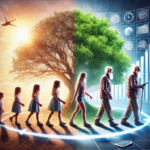Radio Interview, Design, Podcast, Business, article, Horizon Trends, newspaper, Work, AI, Radio Interview, human resources, Innovation, hyperpersonalised, Consulting
The Future of Creativity: The Perfect Harmony of Human and AI?
October 1, 2024
-



